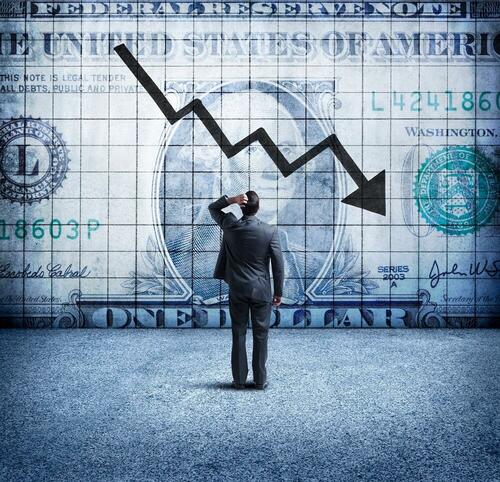Pulling Back The Curtain On The 'Real' US Economy
Revised numbers on US GDP from the Bureau Of Economic Analysis indicate that the economy faces a deeper contraction than originally reported. GDP shrank in the first quarter of 2022 by 1.6%; this is an impressive and sharp reversal from the fourth quarter of last year, which saw GDP grow by 6.9% due primarily to the continued circulation of covid stimulus dollars and consumer credit spending.
It's important to keep in mind that this plunge in GDP occurred BEFORE the Federal Reserve started raising interest rates. Meaning, the Fed did in fact raise rates into economic weakness, much like they did during the onset of the Great Depression, causing even more damage to the economy in the process and prolonging the effects of the crisis. The difference this time is that we do not face a standard deflationary threat, but a stagflationary one. It's a completely different ballgame.
Calls for recession are ample from the mainstream financial media and many alternative analysts, though the assumption among many is that price inflation will track down as the recession pressures grow. This may not be the case.
Loss of buying power in the dollar due to central bank stimulus and numerous supply chain issues indicate an extended period of price inflation well into next year. Furthermore, with foreign central banks now incrementally dropping the dollar as the world reserve currency, there will be even more dollars flooding into the US from overseas. That's too many dollars chasing too few goods and services.
With the GDP decline more pronounced that initially thought, will the Fed capitulate quickly and end rate hikes? It's unlikely as long as price inflation continues through most of the economy. The Fed has made it clear that they are willing to let markets take a considerable hit as they pursue deflation. Suggestions in the media that a recession will create an immediate “equilibrium” in markets and in prices ring rather hollow and naive. These are the same people that were telling the world only a few months back that inflation was “transitory.”
Reflected in the fall in GDP is a growing concern among the public that the price explosion is going to eat away at their wallets and decrease their standard of living. It is also a signal that credit cards are finally maxed out and covid stimulus measures have finally faded away. When easy credit and stimulus move out of play the real economy is revealed, and in our case the true face is an ugly one.
via IFTTT
InoreaderURL: SECONDARY LINK

